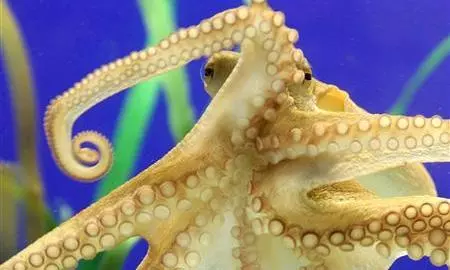
Octopuses can sense light through their tentacles: Study
text_fieldsA recent accidental discovery has revealed that an octopus' tentacles are light-sensitive along with its skin. The study conducted by researchers at the Ruppin Academic Center has found that octopus can sense light and respond through its arms even when it is sleeping or can't see the light with its eyes.
Israeli researchers stated in their study that when exposed to lighting, octopuses' arm tips responded by folding in and moving away from the light beam. Another research had revealed earlier that these invertebrates' skin carried light-responsive cells called chromatophores which expanded when subjected to increased illumination on its skin. This phenomenon was termed as 'light-activated chromatophore expansion (LACE)'.
"In the octopus, you have no bones and no joints, and every point in its arm can go to every direction that you can think about. So even one arm, it's something like endless degrees of freedom," said Nir Nesher, one of the authors of the study along with Itamar Katz, Tal Shomrat, to New York Times.
The octopuses reacted faster when kept in the dark for a week or more by withdrawing from light though it only responded to high-intensity light. Researchers found that the arm stopped withdrawing from the light when detached from its body or when it underwent anaesthesia.
The research was published in the Journal of Experimental Biology in February.






















